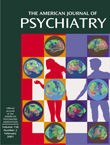Dr. MacQueen and Colleagues Reply
To the Editor: Our initial study examined whether bipolar patients who became depressed while taking a mood stabilizer were more likely to improve after the addition of a second mood stabilizer or an antidepressant. In his comment to the editor, Dr. Goldberg questioned whether our data set could be used to assess whether the patients who became depressed after a period of sustained euthymia differed in treatment responsivity from patients who became depressed after a manic episode. As Dr. Goldberg noted, our group size precluded a definitive examination of this issue; however, we were able to determine the preceding mood state for 23 out of 27 subjects in our group. We could not confidently ascertain whether four subjects who had been referred only for participation in the study had been euthymic for the 2 months preceding the onset of depression; therefore, we did not include these subjects in the analyses. We defined the euthymia-depression group as patients who had had no evidence of manic or hypomanic symptoms within the 2 months preceding the onset of the depressive episode. In contrast, the mania-depression patients had been either manic or hypomanic within the 2 months preceding the onset of depression. Of the 14 patients treated with two mood stabilizers, 10 were assigned to the euthymia-depression group, while four were assigned to the mania-depression group. Of nine patients treated with a mood stabilizer plus an antidepressant, four were in the euthymia-depression group, and five were in the mania-depression group.
Analysis of Hamilton Depression Rating Scale scores revealed a significant interaction between week and prior mood state (F=2.20, df=6, 114, p<0.05); euthymia-depression patients treated with a mood stabilizer plus an antidepressant demonstrated the greatest improvement in Hamilton depression scores across treatment weeks. This differential improvement in euthymia-depression patients treated with a mood stabilizer plus an antidepressant was mirrored in their Global Assessment of Functioning Scale scores (F=2.27, df=6, 114, p<0.03), which also showed the greatest improvement in the euthymia-depression group.
It is interesting that despite the small group size and post hoc exploratory nature of this analysis, there was a demonstrable difference in improvement for the euthymia-depression group treated with a mood stabilizer plus an antidepressant. Speculatively, Dr. Goldberg might have predicted this pattern of results, as he points out that even non-rapid-cycling patients with mania and depression may have a greater tendency toward cyclicity and be less likely to benefit from antidepressant treatment. As there were no patients in our study who became manic or hypomanic after acute treatment with a mood stabilizer plus an antidepressant, it was not possible for us to comment on the relative safety of antidepressant use in the euthymia-depression group versus the mania-depression group. Nonetheless, our results suggested that prior mood state may influence treatment responsivity in depressed bipolar patients; this clearly warrants further exploration. If the finding is confirmed, determining the illness pattern that precedes the onset of depression in bipolar disorder may help clinicians identify those patients for whom the risk-benefit ratio of antidepressant treatment is most favorable.



